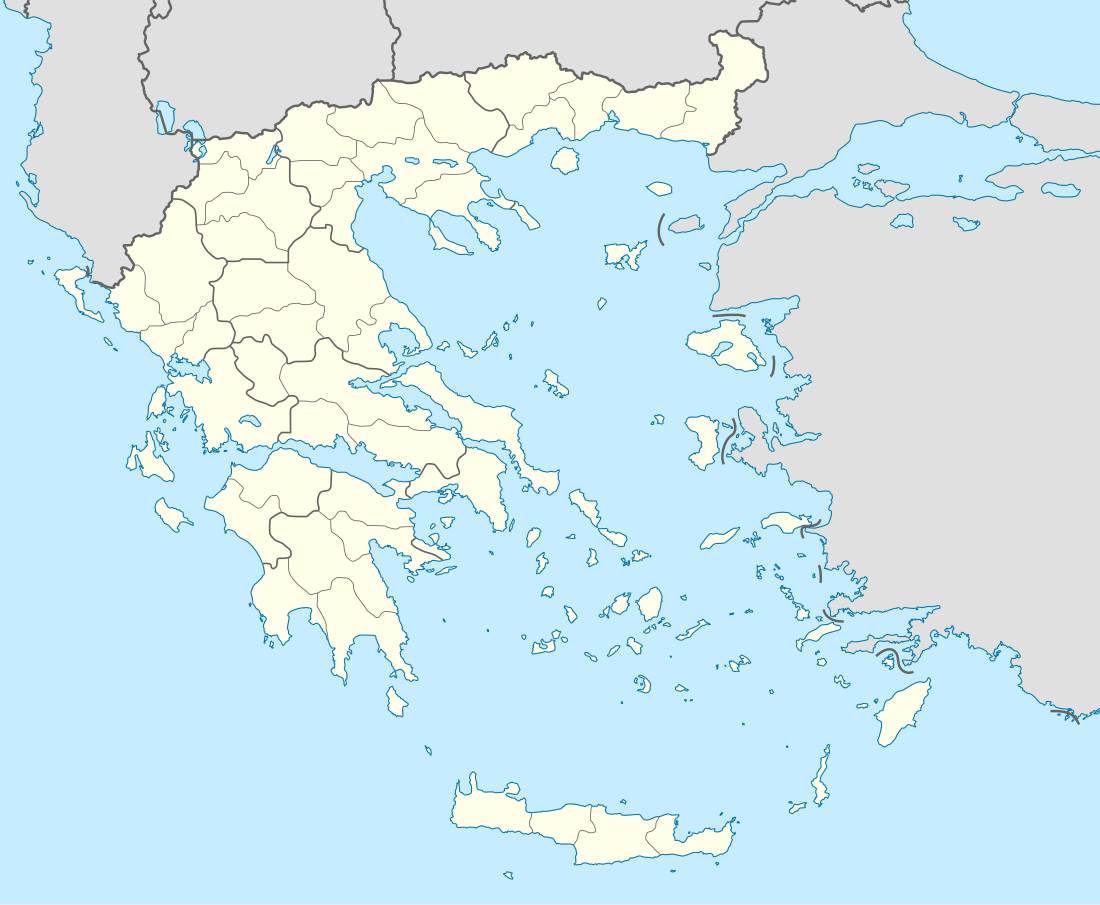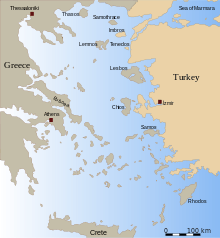Dia (island)
Dia (Greek Δία ['ði.a]), also pronounced locally Ntia (Ντία ['di.a]), is an uninhabited island off the northern coast of the Greek island of Crete. The island is 5 km long, 3 km wide and is located approximately 7 nautical miles north of Heraklion. Administratively, Dia is part of the community of Elia within the municipal unit of Gouves, Hersonissos municipality in Heraklion.
| Native name: Δία | |
|---|---|
 The island of Dia | |
 Dia | |
| Geography | |
| Coordinates | 35.448°N 25.220°E |
| Archipelago | Cretan Islands |
| Area | 11.909 km2 (4.598 sq mi) |
| Highest elevation | 220 m (720 ft) |
| Administration | |
Greece | |
| Region | Crete |
| Regional unit | Heraklion |
| Demographics | |
| Population | 2 (2001) |
| Pop. density | 0/km2 (0/sq mi) |
In the south coast of Dia there are four coves, which are (from west to east) Agios Georgios, Kapari, Panagia (Madonna) and Agrielia. One more cove, that of Aginara, is to the east.
History
The island was formerly known as Standia, by juncture loss in the phrase στήν Δία (Greek for on Dia).
It was the principal port of Crete for centuries.[1] Its four south coves have been used as anchorages since the Minoan period.
Mythology
The islet looks like a giant lizard when viewed from the city of Heraklion. Greek mythology tells of a giant lizard that tried to destroy the island of Crete, however, Zeus turned it into stone with a thunderbolt, thus creating the island.
The island is visible from Crete's capital city of Heraklion, as it would have been in the time of the Minoans, from Knossos. Because of this, it was sometimes identified as the island that Theseus escaped to after killing the Minotaur.
Ecosystem
On Dia there are a number of protected wildlife species including the snail Albinaria retusa, the lizard Podarcis erchardii schiebeli, the wild rabbit Oryctolagus cuniculus cnossius, and Eleonora's falcon, known as mavropetritis in Greek.[2] Dia is part of the European Network of Nature (Natura) 2000 and is a protected hunting ground.[3] There are also a number of protected plants such as Carlina diae.
Ancient port
In 1976, Jacques Cousteau carried out underwater exploration around Dia and found the remains of an ancient port in the waters between Heraklion and Dia.[4]
See also
References
- T.A.B. Spratt, Travels and Researches in Crete, 1:35 (1865)
- O μαυροπετρίτης στη Δία της Κρήτης Greek Ornithological Organisation (Greek)
- Δίκτυο Natura 2000 Protected areas
- Greekislands.com French Rear Admiral's ship "La Therese" (1669) Archived 2012-03-26 at the Wayback Machine
